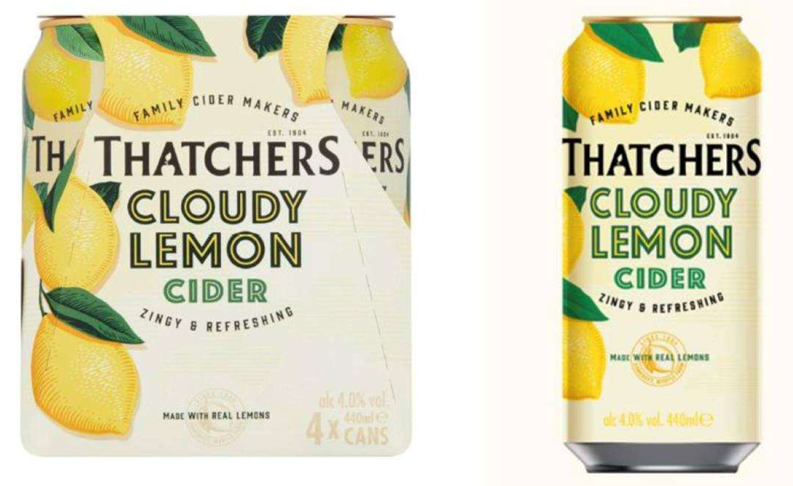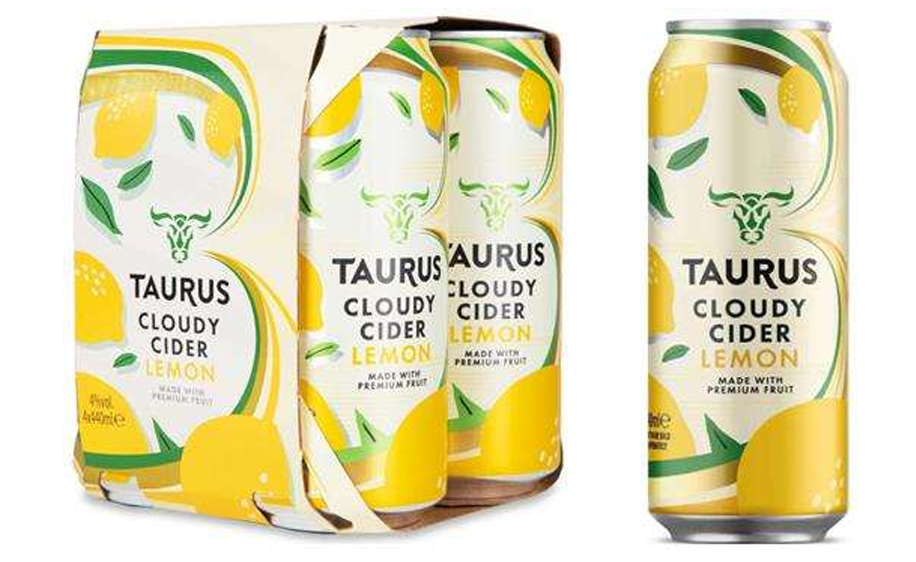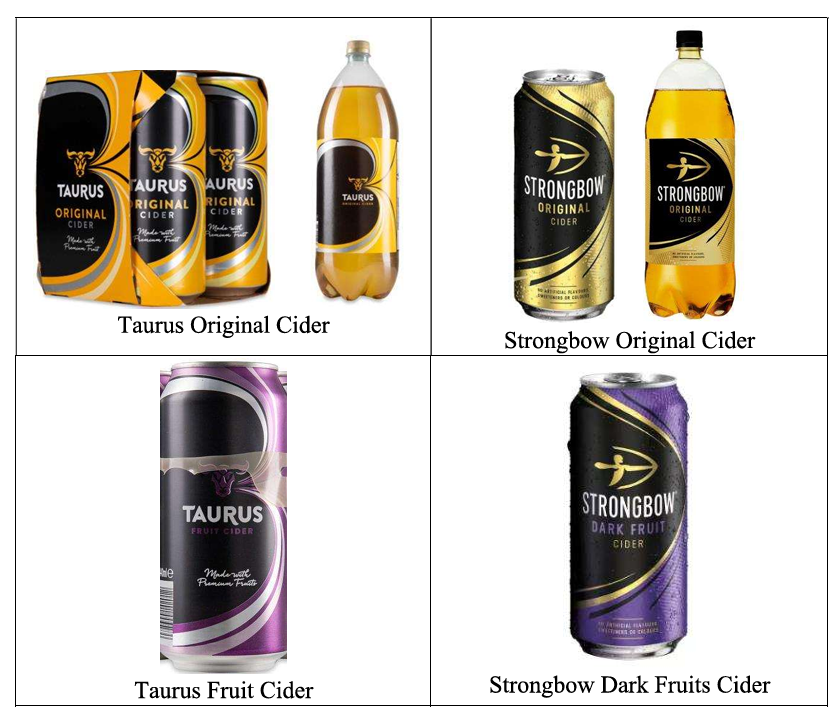Following recent judgment from the Court of Appeal in the case of Thatchers vs. Aldi, Two IP trade mark attorney Rachel Havard unpacks the implications of the decision and offers practical insights for brand owners aiming to safeguard their own intellectual property.
On 20 January 2025, the Court of Appeal handed down a very welcome judgment for brand owners, in their continued fight against look-alike brands.
The appeal, between Thatchers Cider Company Limited and Aldi Stores Limited, concerned last year’s decision by the Intellectual Property Enterprise Court (“IPEC”). The IPEC decision had been in favour of German discounter, Aldi, in relation to their TAURUS brand cloudy lemon cider, despite its rather similar appearance to Thatchers own offering.
Below are the two brands for comparison, with photographs taken from the Court of Appeal decision:


A sour taste: last year’s decision by the IPEC
In this harsh decision for Thatchers, the IPEC dismissed their claims of registered trade mark infringement and passing off against Aldi.
For registered trade mark infringement, the grounds raised had been similarity of the Aldi Sign with the Thatchers Trade Mark and a likelihood of confusion as to commercial origin of the goods (Section 10(2) of the Trade Marks Act 1994), and/or that the Aldi Sign took unfair advantage of or was detrimental to the distinctive character or repute of the Thatchers Trade Mark (Section 10(3)).
The “Thatchers Trade Mark” is the UK registered trade mark shown below:

The IPEC judge considered similarity of the Aldi Sign with the Thatchers Trade Mark to be low and that there was no likelihood of confusion, nor did they consider the Aldi sign to take unfair advantage of or cause detriment to the Thatchers Trade Mark.
Sweet outcome for Thatchers at the Court of Appeal
Thatchers appealed the IPEC decision only on the refusal of the Section 10(3) registered trade mark infringement ground.
In this case, it was particularly important that Thatchers had secured trade mark registration for the label of their product as shown above. Had their registration only been of the word mark THATCHERS, there would be no real basis for argument that Aldi’s TAURUS product and associated labelling/get-up, i.e. the “Aldi Sign” was similar to the Thatchers product get-up.
With Aldi’s “TAURUS” branding of their product, there was unlikely to be confusion of customers that the Aldi product and the Thatchers product came from the same commercial origin, so it is unsurprising that Thatchers did not appeal under Section 10(2).
Under Section 10(3), however, Thatchers’ appeal was successful. The Court of Appeal agreed that the Aldi Sign had taken unfair advantage of the repute of the Thatchers Trade Mark, with each having a number of elements of similarity with the other, and so infringement had occurred.
As per Arnold LJ at paragraph 99 of the judgement:
“The inescapable conclusion is that Aldi intended the Sign to remind consumers of the Trade Mark. This could only have been in order to convey the message that the Aldi Product was like the Thatchers Product, only cheaper. To that extent, Aldi intended to take advantage of the reputation of the Trade Mark in order to assist it to sell the Aldi Product.”
and at paragraph 114, he explained that this fed into a “transfer of the image of the mark” and “riding on the coat-tails of that mark”.
A new zest for trade mark protection
At the beginning of the Court of Appeal judgement, Arnold LJ acknowledged how the IPEC decision had attracted the attention of commentators in the field of trade mark law, saying that:
“Some have criticised the judges’s decision as illustrating an alleged failure on the part of UK law properly to protect brand owners against so-called “look-alike” packaging, while others have commended it as upholding competition and hence cheaper prices for consumers”.
In this case, the cloudy lemon product was quite a visual departure from other products in Aldi’s existing TAURUS range of ciders, but the below images (taken from the Court of Appeal judgement) illustrate that Aldi’s original TAURUS range was itself an imitation of another leading brand in the market place, as it was closely modelled on Strongbow:

Discounters such as Aldi and Lidl are renowned for sailing close to the wind, with their creation of leading brand look-alikes across all product ranges. From a consumer point of view, of course, and with increasing cost of living challenges, there is a desire to buy the next best thing to a leading brand, when a discounter or supermarket’s own version is more affordable. It is the point of purchase likeness that one brand has to the other which prompts the consumer’s decision to buy that next best thing. They would be less likely to do so if the own label brand had its own completely distinct appearance.
For the brand owner, who will have incurred significant cost in designing their own brand and packaging, the imitators are clearly taking advantage of this investment without having to do the work themselves.
As this latest decision of the Court of Appeal clearly recognises transfer of image from one brand to another, or one riding on the coat-tails of another, as ingredients for Section 10(3) trade mark infringement, those in the imitation game will need to be a lot more cautious.
To thoroughly protect themselves, brand owners need to register as many aspects of their branding as possible; this should go further than the traditional registering of word trade marks, company names, logos, or product names – protection of the appearance of labels, product packaging and overall get-up is just as important.
If you have any questions about your own trade marks, branding and IP protection, please do get in touch with us hello@two-ip.com, or visit our website at www.two-ip.com.


